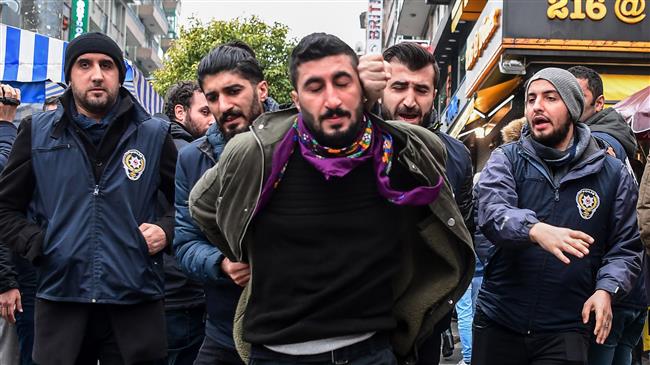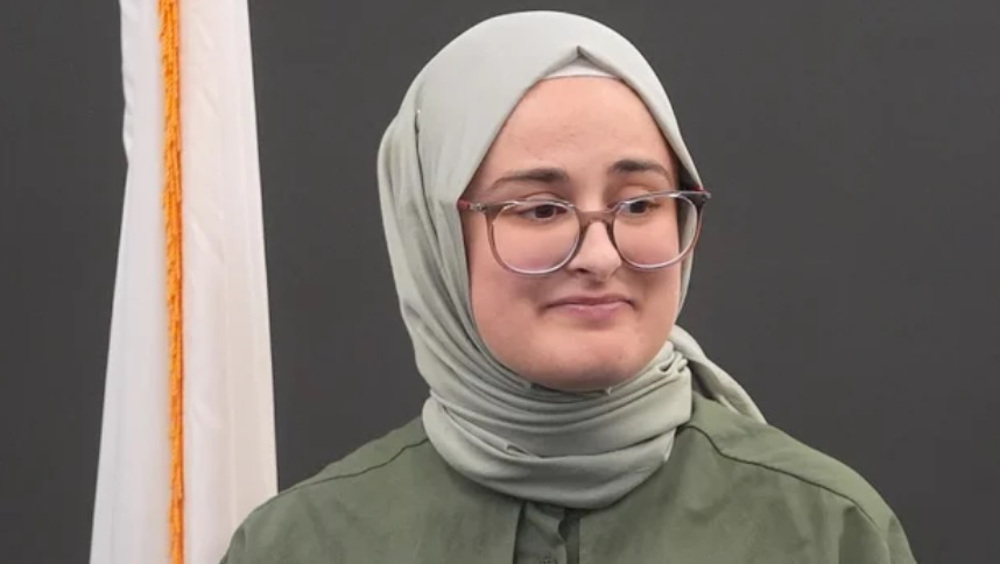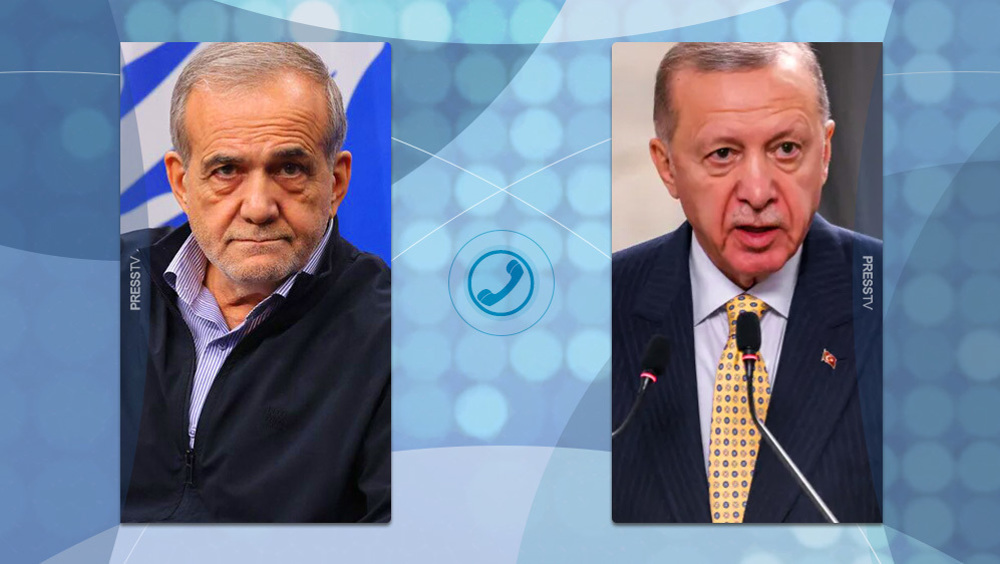Turkey arrests nearly 600 over criticism of Afrin operation in Syria
The Turkish government has so far detained nearly 600 people accused of using social media to protest the country’s military offensive against US-backed Kurdish militants in Syria.
Turkey’s Interior Ministry said in a statement on Monday that 573 people had been taken into custody following the offensive, dubbed Operation Olive Branch, against the Kurdish People's Protection Units (YPG) in Syria's northwestern region of Afrin.
"Since the start of Operation Olive Branch, 449 people have been detained for spreading terrorist propaganda on social media and 124 people detained for taking part in protest action," the statement said.
Ankara has repeatedly warned that it would prosecute those who oppose, criticize or misrepresent the military offensive, with Turkish President Recep Tayyip Erdogan denouncing the opponents of the cross-border incursion as "traitors.”

Last week, a Turkish prosecutor issued detention orders for 11 senior members of Turkey’s Medical Association, including its chairman, after the organization expressed opposition to the offensive in Afrin.
Media reports said another 13 people were also detained for supporting the medics, adding that three of the doctors were later released on probation.
"There are laws that prohibit the glorification of terrorism, support for terrorism through propaganda and media. The prosecutors are implementing the laws," presidential spokesman, Ibrahim Kalin, said after the last week detentions.
Turkey launched the military offensive in Afrin on January 20 in a bid to eliminate the YPG, which Ankara views as a terror organization and the Syrian branch of the outlawed Kurdistan Workers' Party (PKK). The latter has been fighting for an autonomous region inside Turkey since 1984.
The YPG forms the backbone of the so-called Syrian Democratic Forces (SDF), a US-backed anti-Damascus militant group.

Operation Olive Branch in Afrin is Turkey's second major military intervention in Syria since early 2011.
In August 2016, Turkey began a unilateral military intervention in northern Syria, code-named Operation Euphrates Shield, sending tanks and warplanes across the border. Ankara claimed that its campaign was aimed at pushing Daesh from Turkey's border with Syria and stopping the advance of Kurdish forces, who were themselves fighting Daesh.
Turkey ended its campaign in northern Syria in March 2017, but at the time did not rule out the possibility of yet another act of military offensive inside the Arab country.
Meanwhile, Turkey is in the midst of a widening crackdown that was launched after an abortive military coup in July 2016. Since the coup attempt, more than 50,000 people have been jailed and some 150,000 others suspended or dismissed from their jobs.
Netherlands withdrawals Turkish ambassador over 2017 row
Separately on Monday, the Dutch Foreign Ministry officially withdrew its ambassador from Turkey and announced that it would not allow Ankara to appoint one to the country as diplomatic ties deteriorated over a dispute that began during March 2017.
The ministry said in a statement that it had "paused" talks with Turkey on resolving the matter after attempts to heal a diplomatic rift between the two countries failed.
In March 2017, Dutch officials barred a Turkish minister from campaigning and attending a rally in Rotterdam ahead of a constitutional referendum that gave Erdogan vastly increased executive powers.
The Netherlands was holding its own national elections at the time.
Trump threatens Iraq over ex-PM Maliki’s return
VIDEO | Tehran tax administration building destroyed in organized arson, explosion
National unity will block threats to Iran’s territorial integrity: Intelligence minister
VIDEO | Israel-US scheme for Gaza
VIDEO | Iraqi parliament delays vote to elect new president
VIDEO | Gaza City still thirsty due to Israeli attacks, restrictions
VIDEO | Yemen discloses 'Red Sea Missile' amid shifting regional deterrence
Iranian drone swarms pose ‘credible threat’ to US naval assets: Expert










 This makes it easy to access the Press TV website
This makes it easy to access the Press TV website